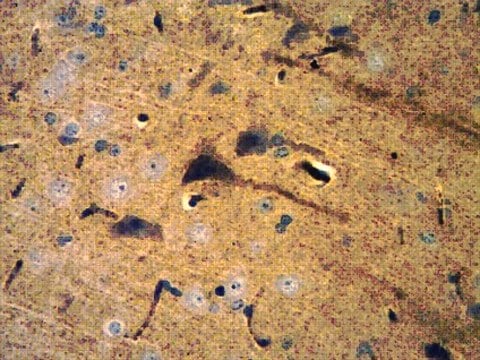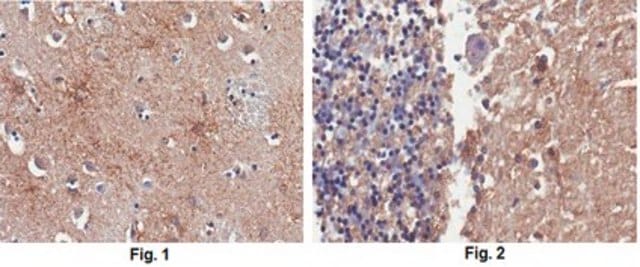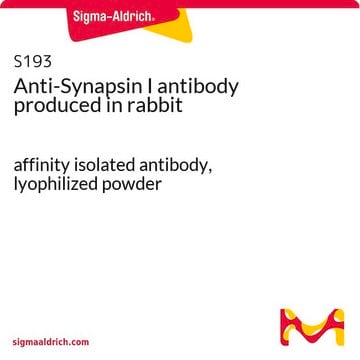P246
Monoclonal Anti-PSD95 antibody produced in mouse
clone 7E3-1B8, purified immunoglobulin, buffered aqueous solution
Sinónimos:
Anti-MRD62, Anti-PSD95, Anti-SAP-90, Anti-SAP90
About This Item
Productos recomendados
biological source
mouse
Quality Level
conjugate
unconjugated
antibody form
purified immunoglobulin
antibody product type
primary antibodies
clone
7E3-1B8, monoclonal
form
buffered aqueous solution
mol wt
antigen 95 kDa
species reactivity
rat
technique(s)
immunofluorescence: 1:500
immunoprecipitation (IP): suitable
western blot: 1:2,000
isotype
IgG2a
UniProt accession no.
shipped in
dry ice
storage temp.
−20°C
target post-translational modification
unmodified
Gene Information
rat ... Dlg4(29495)
General description
Specificity
Immunogen
Application
Immunocytochemistry (1 paper)
Immunofluorescence (1 paper)
Western Blotting (1 paper)
Biochem/physiol Actions
Physical form
Disclaimer
¿No encuentra el producto adecuado?
Pruebe nuestro Herramienta de selección de productos.
Storage Class
10 - Combustible liquids
wgk_germany
WGK 3
flash_point_f
Not applicable
flash_point_c
Not applicable
ppe
Eyeshields, Gloves, multi-purpose combination respirator cartridge (US)
Elija entre una de las versiones más recientes:
Certificados de análisis (COA)
¿No ve la versión correcta?
Si necesita una versión concreta, puede buscar un certificado específico por el número de lote.
¿Ya tiene este producto?
Encuentre la documentación para los productos que ha comprado recientemente en la Biblioteca de documentos.
Los clientes también vieron
Nuestro equipo de científicos tiene experiencia en todas las áreas de investigación: Ciencias de la vida, Ciencia de los materiales, Síntesis química, Cromatografía, Analítica y muchas otras.
Póngase en contacto con el Servicio técnico













